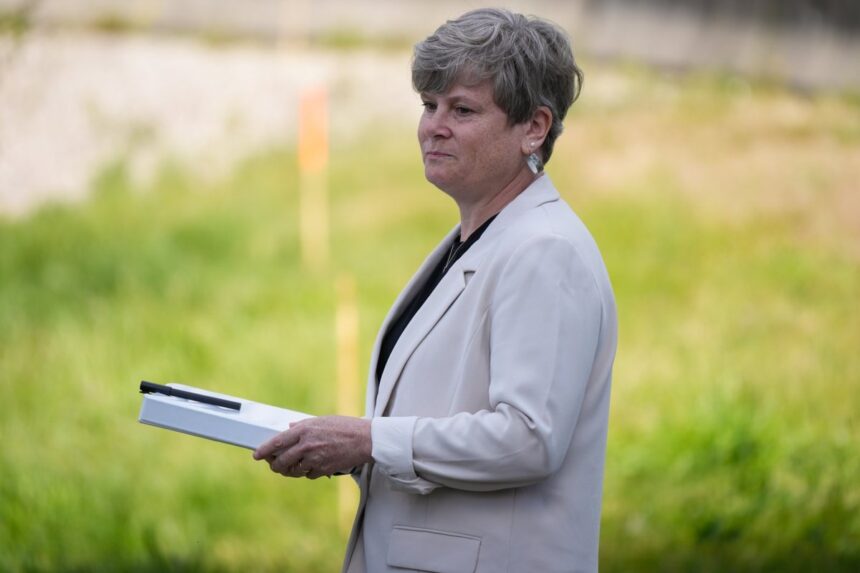Article – I stood outside the Ministry of Health in Victoria last Thursday, watching the quiet drama unfold. A small gathering of parents huddled with placards, their faces lined with exhaustion that comes from fighting bureaucracies while caring for critically ill children. At the center stood Laura McIntosh, clutching a photo of her 10-year-old daughter Noelle, who suffers from an ultra-rare genetic condition called TANGO2.
“We’re not asking for the moon,” McIntosh told me, her voice steady despite the tears in her eyes. “We’re asking for a chance for our daughter to live.”
What brought these families to the steps of the government building was the sudden resignation of four members from B.C.’s Drug Investigation and Coverage Committee, the panel responsible for determining which medications receive public funding. Their departure followed a contentious decision by Health Minister Adrian Dix to override the committee’s recommendation and approve coverage for Ruzurgi, a drug that treats Lambert-Eaton myasthenic syndrome.
The resignations have exposed deeper tensions in how our province makes life-altering decisions about which treatments deserve public money and which don’t—leaving families like the McIntoshes caught in the middle.
“It feels like we’re trapped in a system that wasn’t built for us,” says McIntosh, who has spent over $100,000 out-of-pocket on treatments not covered by provincial health insurance.
TANGO2 affects fewer than 100 children worldwide, causing metabolic crises that lead to deterioration of muscle function, heart problems, and progressive cognitive decline. The medication that could help Noelle costs approximately $14,000 per month.
Dr. Eric Lun, executive director of the B.C. Drug Benefit Council and one of the members who resigned, explained their decision in a carefully worded statement: “When clinical recommendations are overturned without transparent rationale, it undermines the integrity of the entire evaluation process.”
But Minister Dix, who issued a public apology to the McIntosh family two days after the resignations, defended his decision. “Sometimes compassion must prevail when rigid frameworks fail to account for exceptional circumstances,” he told reporters. His office confirmed that B.C. will establish a new rare disease framework by early 2024 that aims to address these difficult cases.
The controversy highlights a growing dilemma in Canadian healthcare: as precision medicine advances, more ultra-expensive treatments for rare conditions are being developed. Health systems designed for population-level decisions struggle with how to fairly allocate resources for conditions affecting very few people.
Dr. Colleen Flood, University Research Chair in Health Law & Policy at University of Ottawa, has studied this tension extensively. “Our system was built around common conditions where cost-effectiveness could be easily calculated. But rare diseases challenge that paradigm—how do we put a price on a child’s life when the condition affects perhaps five people in an entire province?”
According to Health Canada, approximately one in twelve Canadians has a rare disease, though most don’t have approved treatments. Those that do often come with eye-watering price tags, sometimes exceeding $500,000 per patient annually.
Walking with the McIntosh family after the demonstration, I asked Laura what she would say to taxpayers concerned about the sustainability of funding extremely expensive treatments.
“I understand that worry,” she acknowledged. “But I’d ask them to consider what price we put on any life. My daughter’s condition is rare, but her right to treatment shouldn’t be.”
The resignation of committee members has prompted calls for more transparency in how these decisions are made. The committee—composed of physicians, pharmacists, health economists, and patient representatives—typically evaluates medications based on clinical effectiveness, safety, and cost-benefit analysis. But critics argue this approach inherently disadvantages treatments for rare conditions, where robust clinical trials are often impossible due to small patient populations.
“The problem is systemic,” explains Dr. Milena Forte, a family physician who specializes in rare disease advocacy. “When you require the same level of evidence for a condition affecting thousands as you do for one affecting dozens, you create an impossible standard.”
British Columbia isn’t alone in this struggle. Last year, Ontario established a separate framework for evaluating rare disease treatments, while Saskatchewan recently announced a $1.2 million rare disease strategy. Alberta has taken a case-by-case approach similar to B.C.’s current system.
At the federal level, the pan-Canadian Pharmaceutical Alliance has been negotiating with drug manufacturers to lower prices for rare disease treatments, though progress has been slow.
For families like the McIntoshes, these policy debates represent more than abstract governance questions—they’re matters of survival. Since Noelle’s diagnosis three years ago, the family has relocated twice to be near specialized medical centers and has drained their savings and retirement funds.
“We’re not giving up,” Laura told me as she tucked her daughter’s photo back into her purse. “But families shouldn’t have to become full-time advocates just to get basic care.”
Minister Dix has promised that the resigned committee members will be replaced quickly, and that the development of the rare disease framework will include consultation with affected families. But for the McIntoshes and others, the clock is ticking.
As I left the ministry grounds, a light rain began to fall. The demonstrators packed up their signs, heading back to homes where medical equipment, therapy schedules, and uncertainty await. For them, the political controversy is just one more battle in a war they fight every day—a war for their children’s futures in a healthcare system still figuring out how to value the rarest among us.






